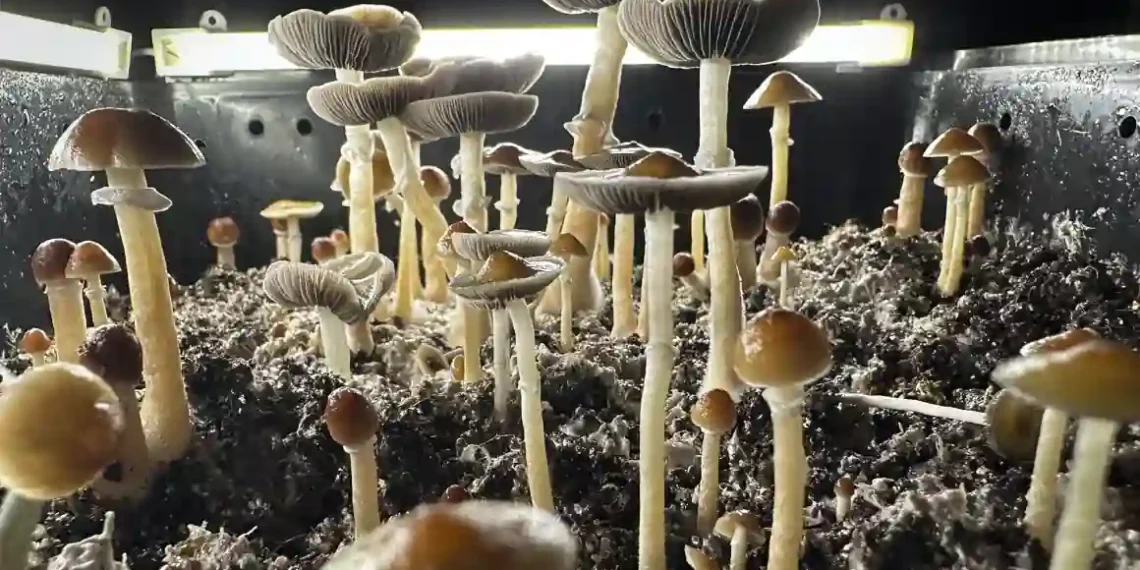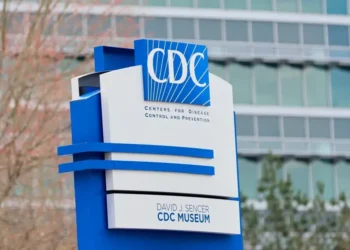Poison Control Calls Surge Amid Rising Psilocybin Use, Study Finds
As the popularity of psilocybin, commonly known as “magic mushrooms,” continues to rise, a new study reveals concerning trends, including a spike in poison control calls. The increase in unsupervised psilocybin use spans all age groups in the United States, with notable surges among adolescents and adults over 30.
Dr. Andrew Monte, coauthor of the study and professor at the University of Colorado Anschutz Medical Campus, highlighted that the usage of psilocybin in 2023 marked a significant increase, particularly in states that liberalized drug policies after 2019. “Since 2019, psilocybin use has risen dramatically, with 12th graders reporting a 53% increase in usage over the past five years,” Monte explained.
The study, published in the Annals of Internal Medicine on Monday, shows a 2.4% increase in psilocybin use among high school seniors in 2023, which translates to a 53% rise compared to five years ago. Even more striking, psilocybin use among adults exceeded that of cocaine, opioids, methamphetamine, and LSD combined. Adults aged 30 and older saw an alarming 188% increase in psilocybin use during this period, while those aged 18-29 experienced a 44% increase.
The rise in usage has been linked to a parallel increase in poison control calls, particularly from adults over 30. Dr. Monte warned that unsupervised use of psilocybin could lead to more adverse effects, as people are using the substance outside of clinical trial settings, where usage is controlled and monitored. “As these substances become more common, we’re seeing more adverse events,” said Monte. “People aren’t using psilocybin in controlled environments, which are the only settings where we have data on its benefits.”
While psilocybin has shown promise in clinical trials for treating conditions like depression, anxiety, PTSD, and substance abuse, the risks associated with its unsupervised use are substantial. Dr. Petros Petridis, a clinical assistant professor at NYU Grossman School of Medicine, noted, “These are powerful agents that can alter consciousness profoundly. In clinical trials, their use is tightly regulated, with psychological screening and support. Outside of those frameworks, the risks, especially for younger users, increase significantly.”
The hallucinatory effects of psilocybin can lead to agitation, accidents, or even self-harm. “Psilocybin can cause your heart to race, and for those with cardiovascular issues, there could be an increased risk of heart-related events,” Monte warned. “It also interacts with medications like antidepressants, so it’s crucial to consult a doctor before using psilocybin.”
Monte’s advice? “If you’re planning to use psilocybin, make sure you’re in a safe place with someone who can support you if you have a bad reaction.”
The dangers of unsupervised psychedelic use don’t stop with physical harm. A study published in March found that negative psychedelic experiences may significantly increase the risk of death within five years, with suicide, unintentional drug poisoning, and even respiratory diseases being linked to these bad trips. Dr. Charles Raison, a professor at the University of Wisconsin, explained that some individuals report long-term struggles following a negative psychedelic experience. “A year later, people still struggle with distressing memories from their trip, affecting their relationships and ability to function,” he said.
However, Raison noted that it’s difficult to determine if a bad experience directly leads to these long-term consequences, as other life factors may be at play.
The study analyzed data from national drug surveys and found a notable increase in psilocybin usage since it was decriminalized in certain cities, such as Denver, in 2019. Before this shift, psilocybin use remained relatively stable. By 2023, lifetime use increased from 10% to 12.1% of the U.S. population, affecting approximately 31.3 million people—up from 25 million in 2019.
States like Oregon and Colorado have taken significant steps in legalizing psilocybin, while others have decriminalized possession or are considering medical use options. Despite this, Monte emphasizes that the majority of psilocybin usage remains recreational, even among individuals with mental health conditions. This poses a risk, as unsupervised recreational use could lead to harmful reactions.
Dr. Raison believes more research is essential to fully understand the long-term effects of recreational psilocybin use. While some people may benefit from the drug, he cautioned that harm reduction strategies, such as supervised use in a safe environment, could help minimize risks.
“Based on current data, I expect both benefits and harms from the increased use of psilocybin,” said Raison. “But if it’s administered in a safe, controlled setting, the harms could be much lower.”
As psilocybin usage continues to grow, it’s clear that more education, regulation, and research are needed to ensure the substance is used safely—whether for recreational or therapeutic purposes. Until then, the rising tide of poison control calls serves as a stark reminder of the risks associated with unsupervised psychedelic use.
This article was rewritten by JournosNews.com based on verified reporting from trusted sources. The content has been independently reviewed, fact-checked, and edited for accuracy, neutrality, tone, and global readability in accordance with Google News and AdSense standards.
All opinions, quotes, or statements from contributors, experts, or sourced organizations do not necessarily reflect the views of JournosNews.com. JournosNews.com maintains full editorial independence from any external funders, sponsors, or organizations.
Stay informed with JournosNews.com — your trusted source for verified global reporting and in-depth analysis. Follow us on Google News, BlueSky, and X for real-time updates.














